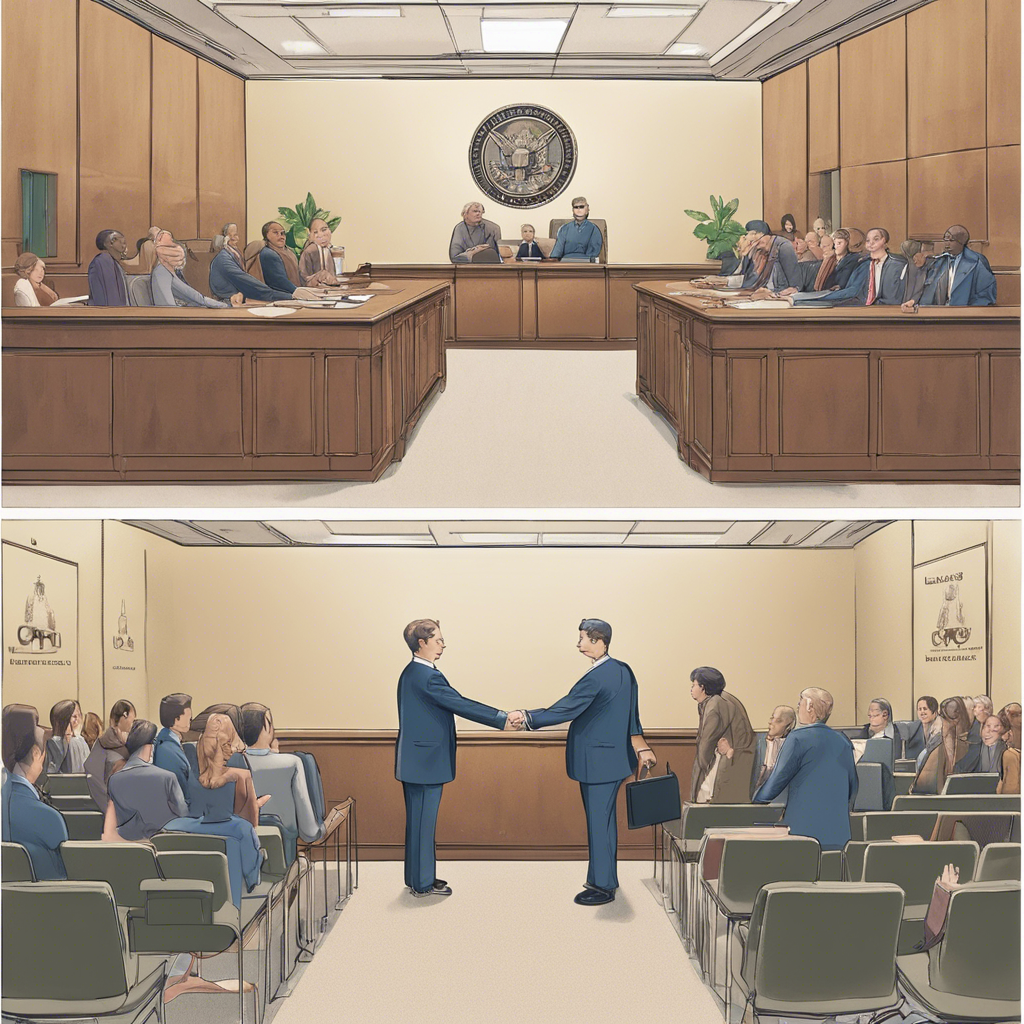Choosing between mediation and litigation is one of the most crucial decisions you will make during the divorce process. Each approach has its own set of advantages and disadvantages, and the best choice depends on your specific circumstances and goals. This guide will help you understand the differences between mediation and litigation and determine which method might be right for you.
Mediation
Overview:
Mediation is a non-adversarial process where a neutral third party, known as a mediator, helps the divorcing couple negotiate and reach a mutually acceptable agreement. Mediation focuses on collaboration and communication, aiming to resolve disputes amicably.
Advantages of Mediation:
- Cost-Effective: Mediation is typically less expensive than litigation because it involves fewer court fees and legal expenses.
- Time-Efficient: Mediation can be quicker than litigation, which often involves lengthy court proceedings and delays.
- Confidentiality: Mediation sessions are private and confidential, whereas court proceedings are public record.
- Control: Both parties have more control over the outcome, as they work together to reach an agreement rather than having a judge decide.
- Reduced Conflict: Mediation encourages cooperation and can help preserve a more amicable relationship, which is especially beneficial if children are involved.
Disadvantages of Mediation:
- Requires Cooperation: Mediation may not be effective if one or both parties are unwilling to negotiate or cooperate.
- Limited Legal Advice: Mediators do not provide legal advice, so each party may still need to consult with their own attorney.
- May Not Resolve All Issues: Some complex or contentious issues may require court intervention.
Litigation
Overview:
Litigation involves taking your divorce case to court, where a judge makes decisions on contested issues such as property division, alimony, child custody, and support. Litigation is an adversarial process and can be more formal and rigid than mediation.
Advantages of Litigation:
- Legal Structure: Litigation provides a formal legal framework and procedures, which can be beneficial for complex cases or when one party is uncooperative.
- Binding Decisions: Court orders are legally binding and enforceable, ensuring compliance.
- Legal Representation: Each party has legal representation, ensuring their rights and interests are protected.
Disadvantages of Litigation:
- Costly: Litigation can be expensive due to attorney fees, court costs, and other legal expenses.
- Time-Consuming: Court proceedings can be lengthy and subject to delays, prolonging the divorce process.
- Public Record: Litigation is a matter of public record, meaning details of your divorce are accessible to the public.
- Increased Conflict: The adversarial nature of litigation can escalate conflicts and damage relationships, which can be especially harmful if children are involved.
Choosing the Right Approach
Deciding between mediation and litigation depends on several factors:
- Level of Conflict: If you and your spouse are able to communicate and negotiate effectively, mediation may be a suitable option. If there is significant conflict or a history of abuse, litigation might be necessary.
- Complexity of Issues: Complex financial matters, business interests, or highly contentious custody issues may require the structure and legal oversight of litigation.
- Desire for Control: If you want more control over the outcome and are willing to work collaboratively, mediation offers a more flexible approach.
- Budget and Time: Consider the costs and time associated with each method. Mediation can be quicker and less expensive, while litigation may be more costly and time-consuming.
Conclusion
Mediation and litigation each have their own benefits and drawbacks. Understanding the differences and considering your specific situation can help you choose the right approach for your divorce. Mediation offers a collaborative and cost-effective solution, while litigation provides a formal legal framework for resolving disputes. Consulting with an experienced divorce lawyer can provide valuable insights and help you make an informed decision that best meets your needs and goals.

Comments are closed